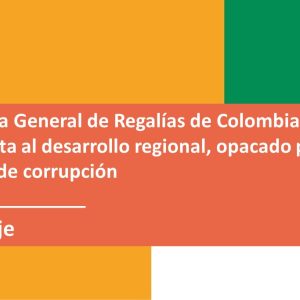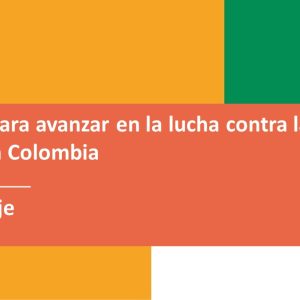During the month of August, three workshops were held in different regions of the country in order to disseminate and discuss the Initiative for Transparency in Extractive Industries-EITI- and the progress of the process in Colombia. In addition, the Civil Society Table for Transparency in the Extractive Industries was presented, its members, its purpose, the weaknesses in the extractive sector and information on environmental expenses.
Neiva
On August 6, a workshop was held with presidents of Community Action Boards, veedores, candidates for Council and Governorship, public officials, students, environmentalists and journalists in order to learn about the regional perspective on mining extraction issues. and oil, as well as on access to information and transparency in them.
The attendees raised problems in other sectors, such as the conflict that is currently taking place in the region due to the construction of the Quimbo dam and the lack of transparency and high levels of corruption of the multinationals present in the area and the public administration. Based on this, the spokespersons for the organizations raised the need to form a group with the organizations present to address the problem with water resources that is affecting the region.
Medellin
The workshop focused on small-scale mining, the attendees expressed the need for informal miners to learn about this type of initiative due to the demands of the sector. In turn, the workshop addressed issues such as: the possibility of including small-scale mining in the EITI initiative, the importance of advocacy in public policies related to small-scale mining, the regulations of the extractive sector, among others.
On the other hand, those attending the workshop proposed establishing a Departmental Roundtable for Antioquia focused on the issue of small-scale mining, in order to debate public policy issues related to the extractive sector and identify gaps and difficulties.
Arauca
The workshop was held on August 25 with journalists, students, public officials, observers and the community in general on the role of the Civil Society Roundtable and the EITI initiative, with the purpose of making the community aware of the dynamics of the extractive sector and their participation in the generation of information for the transparency report hosted by Colombia.
The journalists indicated that these spaces are very important to obtain information on initiatives in the sector, but they recommended involving companies more directly in this dialogue. For their part, the social leaders who participated in the workshop stated that it is necessary to be clear about who should be asked for information related to the approval of new extractive projects, and they also recommended establishing meeting spaces between the National Government, the community, and private companies in each region.
At the end of each workshop, the attendees highlighted the importance of having environmental information on the projects that large multinationals have in the region, which could generate actions by civil society organizations for the common good.
More information about the Civil Society Roundtable
On August 10, the Fourth Meeting of the Civil Society Table for Transparency in the Extractive Industries was held, which convened 18 civil society organizations in order to review the progress in the execution of the Action Plan defined in the last meeting of the same and program the next activities that will be carried out in the second semester of the year.
During the meeting, the progress of the programmatic lines was reviewed: continuity in the participation of the EITI process; access to information on environmental matters; knowledge and understanding of the universe of small mining; incidence in public policies of the energy mining sector; capacity building and sustainability of the Civil Society Board.
There was also a training space on “Citizen Participation and Access to Environmental Information” and Socialization of “Statutory Law 1757 of 2015: By which provisions are issued regarding the promotion and protection of the right to democratic participation”
Finally, the organizations had the opportunity to discuss the environmental issue in the EITI process, and agreed to continue with the efforts aimed at ensuring that this space continues to have awareness and information efforts at the territorial level.


